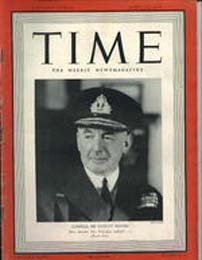C-in-C of Greek forces when the Italian invasion of Greece from Albania began on October 28, 1940; succeeded in driving the Italian invasion forces back into Albania; when the Greek Army was forced to capitulate to the Axis following the German invasion from Bulgaria and Yugoslavia in April 1941, was arrested by the new military leader, General Tsolacoglou, and handed over to the Germans; was taken to Germany in 1943 and inprisoned until his liberation from Dachau concentration camp by the Americans in 1945.
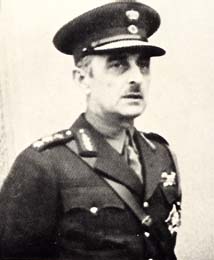
Air Officer Commanding No. 11 Group RAF Fighter Command during the Western Offensive and the Battle of Britain; shares with the commander of RAF Fighter Command, Dowding, much credit for the successful evacuation of Dunkirk and the subsequent victory over the Luftwaffe; was nevertheless criticized by colleagues, as was Dowding, for the conventional defensive doctrine which underpinned the tactical deployment of his formations and both Park and Dowding were replaced immediately after the Battle of Britain, a decision which Park bitterly resented; transferred to a training group in December 1940 and resumed active service as AOC Allied HQ in Egypt in the autumn of 1941, the as AOC to Malta in July 1942; initiated offensive tactics to disrupt Axis supply lines to North Africa and provided air support fo Operation Torch in November; his squadrons later provided substantial support for the Allied landings in Sicily and Italy in 1943; In 1944 took command of RAF forces in the Middle East, later transferring to command Allied Air Forces in Southeast Asia for the campaigns in Burma.
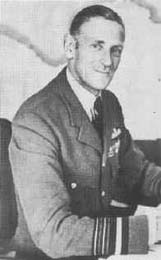
commander of land forces which won the first land victory of the Pacific War for the United States at Guadalcanal in early 1943, went on to command the Desert Training Center and later the US 7th Army, which was assigned to the invasion of southern France in August 1944; forces under his command fought up the Rhone Valley into northern Alsace and the Saar; in late April 1945, his forces made a hurtling advance into southern Germany to prevent the formation by Germany of a 'national redoubt', though this last-ditch threat to the Allied advance in Northwest Europe later proved to be fictional.
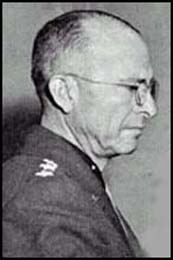
flamboyant and hard-driving American field commander, among the first American converts to the new theories of armored warfare, had demonstrated the effectiveness of tank warfare under his own dynamic leadership as early as 1917, when he commanded the 304th Tank Bde in the World War I Meuse-Argonne offensive; despite the difficulties imposed by his unguarded egotism and ruthless, iconoclastic temperament, was quickly promoted, once war broke out to divisional commander, 2nd Arm Div, and then in July 1942, to command the Western Task Force for the Allied invasion of Northwest Africa, Operation TORCH; then took over the US I(?) Corps in Tunisia after the disaster at Kasserine in February 1943. His dashing command of the US 7th Army for the invasion of Sicily established him as a popular hero and an immensely competitive personality; characteristically, service in Sicily also nearly cost him his career, when an over-publicized incident in whih he impatiently slapped a young battle-fatigued soldier resulted in his humilating relegation until January 1944, when he was assigned to prepare for the coming Normandy invasion, playing a major part in the deception plans for it as the notional commander of the US 1st Army Group. Allocated command of the US 3rd Army as a follow-up force to the cross-Channel invasion in June 1944, under Supreme Allied Commander Eisenhower, his orders were to land behind the US 1st Army under Gen Bradley; his forces did not become operational until late July, when an explosive breakout from the Normandy beachhead at Avranches and a lighning advance into the French interior as far as Lorraine again proved Patton's outstanding abilities. Was once more at the center of argument with British General Montgomery - whose cautious systematic methods were in dramatic contrast to his own - when opposing strategies and logistical factors brought the two commanders into direct competition for supplies; nevertheless, his contribution to the Allied military effort is hard to overstate; his total self-certainty and its effect on the contribution of troops under his command played a key part in sustaining Allied pressure on German forces through the autumn of 1944 and in the defeat of the German Ardennes counter-offensive in December; In April and May 1945 overtook the main Allied advance in the fastest and most penetrating drive southeastward into Germany, halting, on Russia's request, over the borders of Czechoslovakia; was killed in a car accident near Mannheim in December 1945.
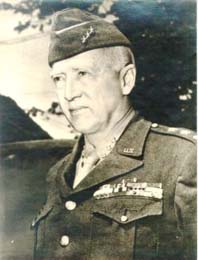
promoted field marshal just before he surrendered his army to the Russians at Stalingrad in January 1943, was a regular officer in World War I and served both Weimar and Nazi governments; during the first part of the war, was Deputy Chief of Staff to Halder and responsible for much of the planning for the invasion of RLussia; in 1942 was given command of the 6th Army, poised to attack Stalingrad, and took the city, but his forces were themselves encircled by the end of the year; force to surrender on January 31, 1943, was publicly vilified by Hitler; later in thw war broadcast for the Russian National Committee for Free Germany and was used by the Soviet Union as a prosecution witness at Nuremberg, where he confirmed the complicity of the German General Staff in the attack, invasion and colonization plans for Russia; released from prison in Russia in 1953; died in East Germany in 1957.
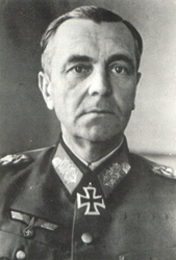
British C-in-C of RAF Bomber Command 1940-2 and subsequently Commander of Allied Air Forces in Southeast Asia under Mountbatten following the Allied defeat in Burma; was responsible for organizing the Allied air forces for its recapture, as well as for airlifting supplies from India to China over the Hump; his air force made a significant contribution to the Allied victory in Burma in 1944, maintaining supply missions for the invading 14th Army; retired in November 1944.
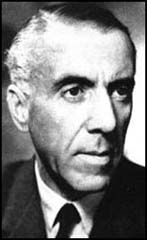
French military hero of Verdun in 1916, post-WWI commander of the French Army and highly influential military figurehead and strategist of the conservative school, acted as head of state of Vichy France from 1940-4; broght into the French cabinet by Premier Paul Raynaud in 1940 while German forces advanced through Belgiumr, he, like Laval, was influenced by Hitler's grandiose claims to be midwife to a new era and a new order in Europe; adamantly opposed to any military union with Britain, which he had already prejudged as doomed to defeat, had a majority of cabinet support in pressing Reynaud for an armistice with Germany, following the German invasion and occupation of Paris on June 14; Reynaud's commitment to carry on the war effort from Africa and the French Empire resulted in his resignation as premier, to be replaced by Pétain. The surrender terms ditcated to the French at Compiègne on June 22 divide France in two zones, northern (occupied) and southern (unoccupied); formally self-appointed head of the net Etat Français, by powers given him by the French National Assembly in July, his leadership of Vichy France was authoritarian and collaborative; although the new constitution of France was never completed, envisaged a state based on 'work, family and fatherland' that broadly echoed Fascist ideology; following the Allied TORCH invasion of Northwest Africa, however, and Hitler's occupation of the 'free zone' in early 1942, old age and compromise increasingly undermined his authority. Arrested by the Germans in August 1944, chose to return to France to face trial in April 1945; convicted of collaboration and sentenced to military degradation and death, his penalty was commuted by Gen de Gaulle to life imprisonment.
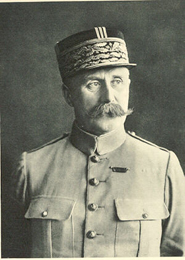
British commander of forces in Singapore at its surreneder to the Japanese in February 1942, had taken command of British forces in Malaya in July 1941, having previously served in France as Chief of Staff of Gen Dill's Corps and been a divisional commander in Britain; when 3 divisions of crack Japanese troopes landed in northern Malaya and Thailand at the start of an offensive directed against Singapore in December 1941, was faced with the practically hopeless task of holding off the Japanese advance southwards through Malaya with two and a half unreinforced and poorly prepared divisions and virtually no air cover; having sunk the two British battleships, Repulse and Prince of Wales, which had been sent to defend Singapore and challenge any attempted landing of Japanese troops on the Malay peninsula, Japan'c control of the seas around Malaya was undisputed; the resulting costly and chaotic retreat of British forces in Malaya that culminated in the defense of Singapore and the final surrender of Percival and some 130,000 troops to Japanese Gen Yamashita was blamed on Percival's poor generalship at the time; responsibility for the ignominious British defeat must be shared, however, by complacent British military and political leaders who had continued, without justification, to view the conquest of Singapore as impossible; survived Japanese captivity and was present at the signing of the Japanese surrender in Tokyo Bay.
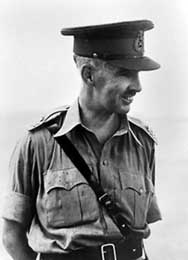
was 11 years old and had just begun school in England in 1934 when his father, King Alexander I of Yugoslavia, was assassinated by a Croatian fanatic while in Marseilles, France; after the Germans invaded Yugoslavia in April 1941, he and his ministers escaped through Greece to London, where a government-in-exile was established; made a serious error in judgment in backing Dragoljub Mihailovic, a Serb who headed the Chetniks, antimonarchist guerrillas who had battled the German occupiers; reached an accommodation in 1944 whith Communist Partisan leader Josip Broz Tito, who had British support, his influence by then had declined sharply, especially after Tito had Mihailovic executed; never returned to Yugoslavia and Tito declared the country a republic in November 1945.
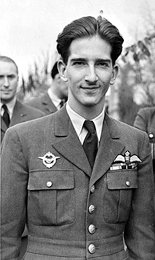
Soviet commander of the Special Maritime Army which defended the Black Sea port of Odessa in 1941; in the following year took command of the Black Sea Front and the defense of Sevastopol, which fell to the German forces in July 1942; transferred to command the North Caucasus Front in 1943, directed operations in the Kerch peninsula and the Crimea, but was removed, on the recommendation of Political General Mekhlis, from command of the 2nd Belorussian Front, and was later dismissed as commander of the 4th Ukrainian Front, after the failed offensive in the Carpathians.
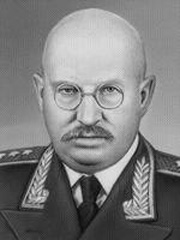
Soviet Front commander who fought with distinction at Leningrad and Stalingrad and commanded the Bryansk Front (north of Kursk) during the Russian counterattack in July 1943, though it appears that he did not have Stalin's confidence; in command of the 2nd Baltic Front during 1944, was replaced by Yeremenko when his forces failed to take Riga.
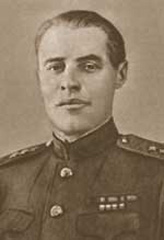
British air leader, and a committed supporter of strategic heavy bombing as the RAF's prime function; became head of Bomber Command in April 1940, and was Chief of the British Air Staff from October 1940 to December 1945; as Air Member of the Chiefs of Staff Committee, directed RAF policy and played and important role in shaping wartime Allied air strategy; a firm advocate of the policy of area bombing for much of the war, came into conflict with the American strategic bombing chiefs who favored precision bombing as a more effective strategy; a compromise arrangement to continue separate daylight and night bombing, agreed at the Casablanca Conference, was modified by Portal, who was convinced of the need to combine Allied operations against chosen targets and establish a higher level of co-operation with the USAAF; early in 1944, increasingly impressed by the effectiveness of precision bombing, ordered experimentation by the RAF in night-time precision raiding against the oil targets on which US daylight attacks were concentrated; the subsequent diversion of part of Britain's strategic bombing force to the pre-invasion precision bombing of German communications and supply lines in France, known as the Transportation Plan, was highly successful, although it strained relations with Harris, C-in-C Bomber Command, who deplored any distraction from the mass area bombing of German cities and offered to resign in January 1945, an offer rejected by Portal.
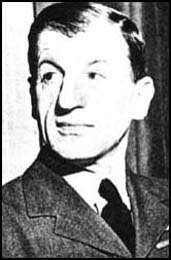
British First Sea Lord; a flag captain at the Battle of Jutland in 1916, alternated between sea and staff commands after World War I and was a full admiral in command of the British Mediterranean Fleet when he was recalled to fill the post of First Sea Lord (Chief of Naval Staff) early in 1939; although a fine fleet tactician, his methods in this high office - which was combined with the chairmanship of the British Chiefs of Staff Committee until 1942 - provoked considerable criticism; regarded as too old for the job by the press, his personal concern with the direct running of operations led to unjustifiable interventions on several occasions, resulting in serious overwork and the eventual failure of his health; nevertheless, his grasp of overall strategy proved to be accurate and by the time he collapsed from a brain tumor at the first Quebec Conference of August 1943, the Royal Navy had all but mastered its European enemies; died in London on October 21, 1943, and was replaced by Adm Cunningham.
